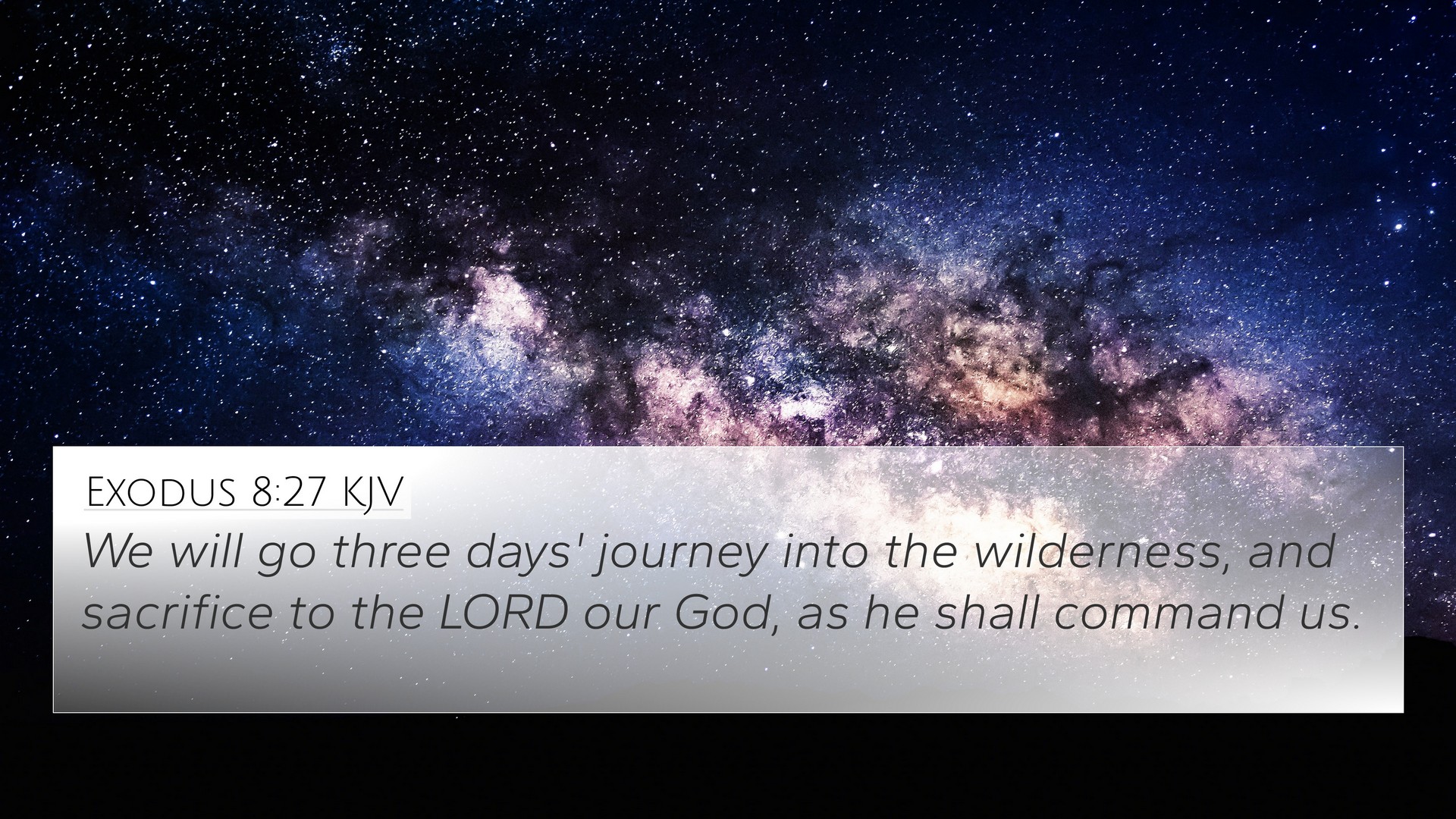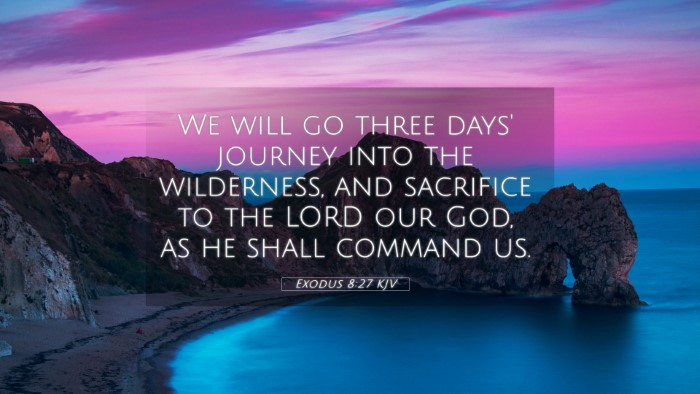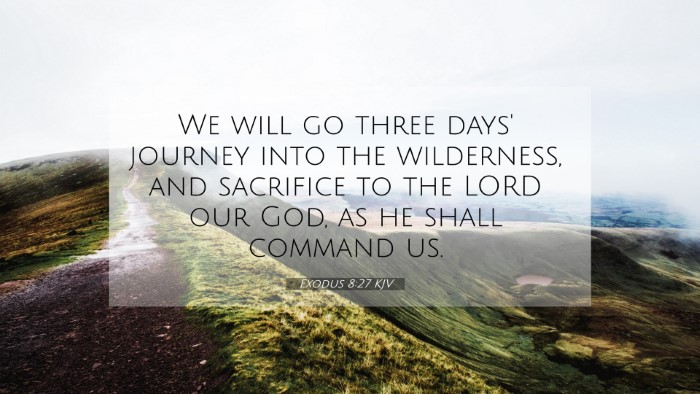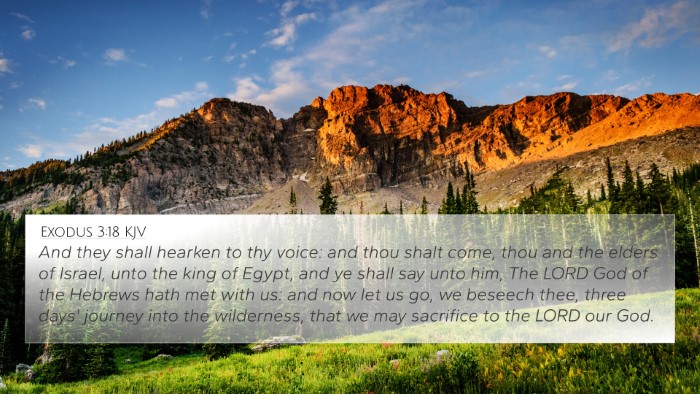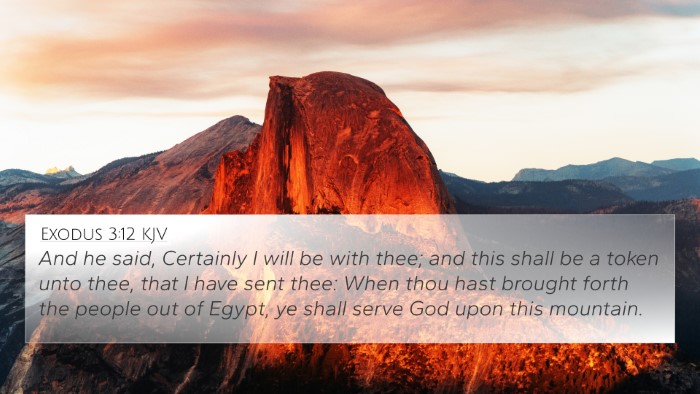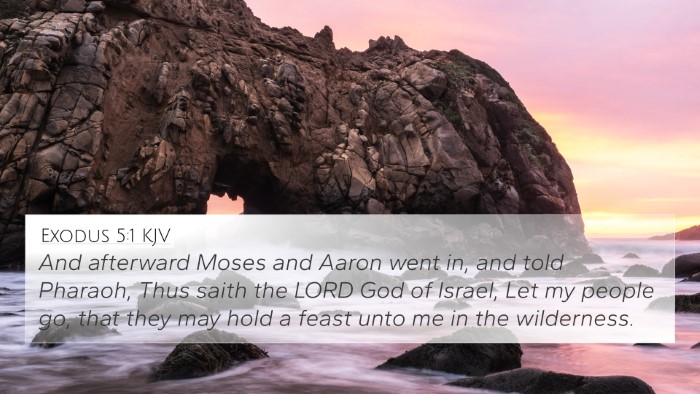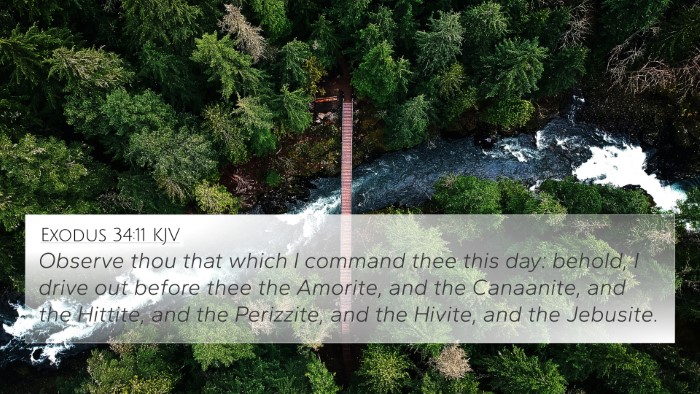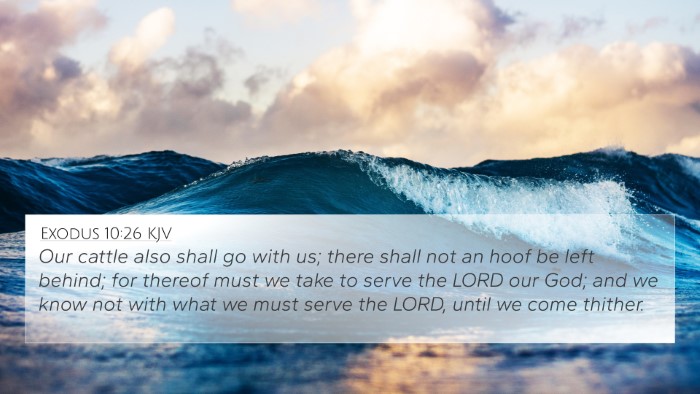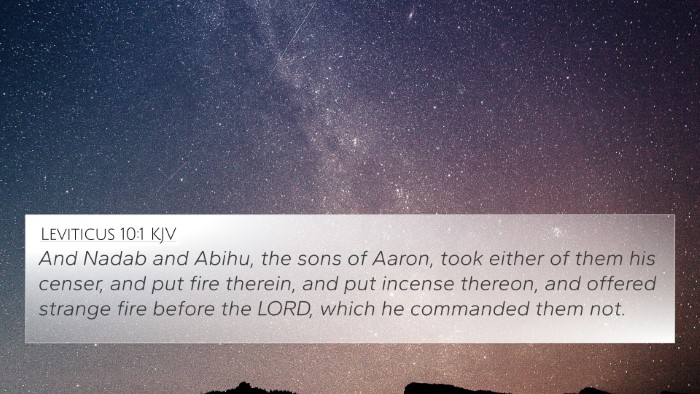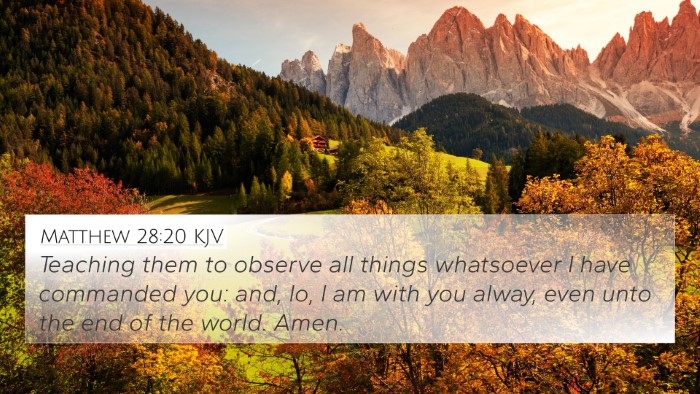Understanding Exodus 8:27
Exodus 8:27 states, "We must go three days' journey into the wilderness and sacrifice to the Lord our God, as He has commanded us." This verse occurs in the context of Moses' negotiation with Pharaoh during the plagues of Egypt. It highlights the demand for the Israelites to be freed to worship God, distinguishing the importance of obedience to divine command and the need for spiritual freedom.
Contextual Background
The setting of Exodus 8:27 is critical in understanding the depth of its meaning. Moses is relaying God's command, which signifies divine authority over human rulers, underscoring the necessity of worship and sacrifice to Yahweh.
Commentary Insights
-
Matthew Henry:
Henry emphasizes that this demand for a three-day journey signifies the importance of setting aside time for God. It is also symbolic of genuine worship that cannot be adequately confined within the structures established by earthly authority.
-
Albert Barnes:
Barnes points out that Moses’ insistence on going into the wilderness illustrates the necessity of complete devotion to God, as worship in a foreign land, far from the influences of Egypt, is essential for the Israelites to truly connect with God.
-
Adam Clarke:
Clarke notes that this journey was not merely physical but also spiritual, emphasizing the need for the Israelites to seek God outside the influence of their Egyptian captivity. This physical journey reflects the spiritual journey every believer is called to take.
Bible Verse Cross-References
To fully grasp the meaning of Exodus 8:27, it is helpful to consider several related verses:
- Exodus 5:1: Here, Moses demands Pharaoh let the Israelites go to worship in the wilderness.
- Exodus 3:18: This verse shows God's instruction to Moses regarding bringing the people to the wilderness to sacrifice.
- Exodus 10:9: Also discusses the Israelites' obligation to worship God; emphasizing the nature of their worship.
- Psalm 107:4-7: This Psalm reflects on God leading His people from a place of bondage to freedom, similar to the exodus theme.
- Isaiah 30:29: This verse speaks about the joy that comes with worshiping the Lord, connecting back to the call for the Israelites to worship Him properly.
- Hebrews 11:29-30: This New Testament reference discusses the faith of the Israelites in the context of leaving Egypt, relating back to their deliverance.
- Galatians 5:1: This verse calls for freedom in Christ, paralleling the theme of liberation seen in Exodus.
Thematic Connections
Exodus 8:27 is richly thematic, showing connections regarding:
- Divine Authority: The insistence on worship illustrates God's sovereignty over human rulers.
- Spiritual Freedom: The journey represents breaking free from bondage, paralleling the larger biblical narrative of freedom in Christ.
- Obedience: The call to sacrifice and worship reflects the broader theme of obeying God's commands as central to faith.
- Worship as Essential: The emphasis on going out into the wilderness underscores that worship is vital for spiritual connection.
Practical Applications
As believers reflect on Exodus 8:27, several applications arise:
- Recognizing the necessity of setting aside time and space for worship in one’s life.
- Understanding the importance of seeking spiritual freedom from worldly influences.
- Emphasizing the need for communal worship and connection with God.
- Learning the value of obedience to God's commands for personal and communal spiritual growth.
Conclusion
Exodus 8:27 serves as a profound reminder of the importance of worship, obedience, and the pursuit of spiritual freedom. By engaging in cross-referencing and understanding related biblical texts, believers can draw deeper insights into God's will and His relationship with humanity.
Further Study on Cross-Referencing
For those interested in studying the connections between Bible verses further, utilizing tools such as a Bible concordance, a Bible cross-reference guide, or comprehensive Bible cross-reference materials can enhance one’s understanding. Learning how to use Bible cross-references not only enriches personal study but also aids in sermon preparation and theological discussions.
